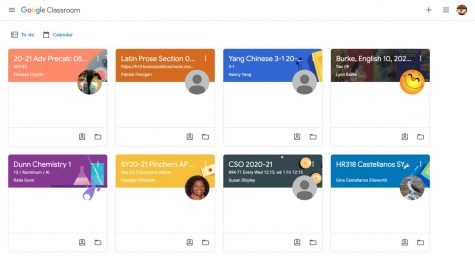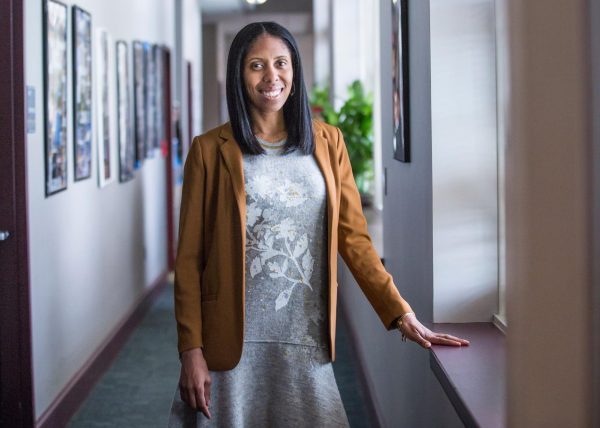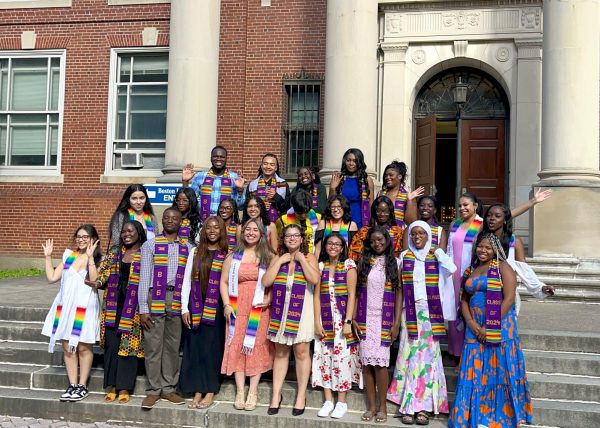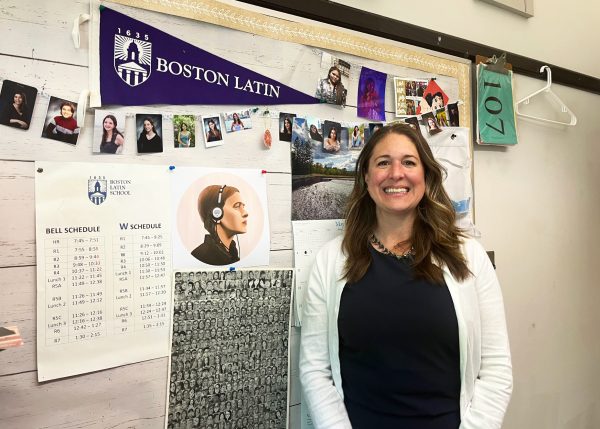Town Hall Tutors Teachers in Virtual Learning

On November 7, the Boston Latin School Student Council and members of the school administration hosted a Town Hall meeting regarding virtual learning practices and students’ social and emotional well-being.
The Town Hall attendees included Head of School Rachel Skerritt, Assistant Headmaster Mr. Jonathan Mulhern, Student Council advisor Mr. Jim Levesque and 117 students from all grades, marking the largest BLS Student Council-led Town Hall to date. Students shared their ideas, which helped to foster open conversations about virtual learning.
In one breakout room, students shared their opinions regarding the most effective virtual learning practices. In terms of technology, students favored short, engaging videos and third-party apps like Kahoot!, Quizlet and Peardeck. On average, students tend to appreciate getting a class plan a week in advance, and many prefer the fall class schedule over that of last spring. While the use of breakout rooms was in the gray area with answers ranging across the spectrum, the implementation of teacher office hours was overwhelmingly popular.
In another breakout room, students discussed the least effective virtual learning practices, many of which centered around technology use. Students recommended ice breaker activities, random room checks and semi-permanent groups rotating from two to three times per term. Suggestions for homework included treating the weekend as ‘one school night’ per the policy, and avoiding homework changes later in the week or during days off. Overall, students found the incorporation of feedback sessions during extended homeroom, along with regular check-ins during class and via Google Forms to be helpful.
Xiangan He (I) specifically expresses frustration over pre-selected group work, explaining that, “several of the less hardworking students, or students who just don’t care would basically free ride for a grade off of the people who do happen to do the hard work.” He also mentioned that the lack of guidance on assignments and office hour availability were obstacles to successful virtual learning.
In the last breakout room, students offered insight into what has best supported their social and emotional well-being, with many emphasizing the importance of connecting with friends and teachers. Student club meetings and regular FaceTime sessions were reportedly helpful with maintaining friendships, but students noted a need for more student-to-student relationship development, especially in lower grades. Students advised teachers to start classes with icebreakers, check in regularly and allow “email” office hours.
Student Council President Ludovico Rollo (I) states, “Clubs are the fun part that teachers should recommend. Students are looking for connections with teachers […] [and] long-lasting relationships with friends.”
Following the Town Hall, Student Council officers presented feedback and recommendations to all faculty members during the professional development meeting on November 10. Teachers are planning to make changes accordingly beginning next term.
Mr. Levesque observed that teachers have already begun to incorporate feedback through altering Google Classroom setups, adjusting what is taught or due on a Monday when the schedule is compressed and sharing Google Classroom tutorials in faculty announcements. He noted that during the meeting, “The faculty listened carefully and asked great questions, and they thanked the officers for the feedback. There was lots of engagement and gratitude in the room.”
Throughout hybrid learning, virtual learning practices would shift toward more task-oriented live sessions, but would look structurally similar. According to program director Ms. Kathleen Bateman, the science department would change virtual learning to provide as much engagement and hands-on learning as possible under a hybrid model. Mr. Mulhern noted, however, that time periods would not return to the normal seven-block schedule.
Latin teacher Mr. Michael Mordine concluded, “We should definitely continue to take feedback from students, from town halls and all sorts of ways. It’s incredibly important to hear your voices and what works for you […] We teachers can learn a lot from you students about how we can do our jobs better.”





